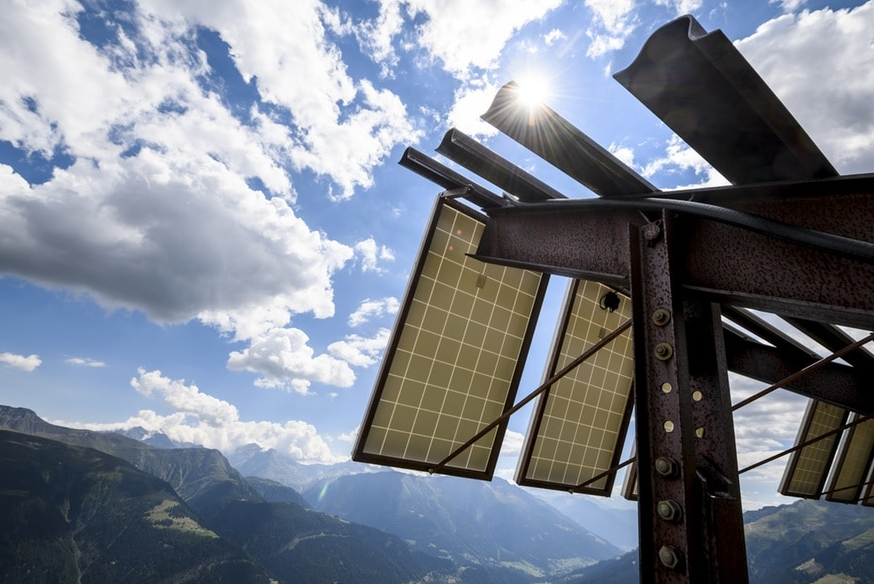Solar energy systems supplied 6.5% of the electricity required in Switzerland in the first half of 2022 © Keystone / Jean-christophe Bott Fears of an electricity shortage in Switzerland appear to have had a positive effect on the expansion of solar energy. The Swiss Federal Office of Energy (SFOE) expects the market to grow by around 50% in 2022. New photovoltaic construction in Switzerland rose by 43% to 683 megawatts in 2021, revealed SFOE statistics on solar energy published in July. This year the SFOE expects an increase of 900-1,000 megawatts in solar energy, according to an enquiry by the Swiss News Agency Keystone-SDA. This corresponds to a market growth of around 50%. The SFOE currently expects production to exceed 1,000 kilowatt hours (kWh) per kilowatt
Topics:
Swissinfo considers the following as important: 3.) Swissinfo Business and Economy, 3) Swiss Markets and News, Featured, Latest News, newsletter
This could be interesting, too:
Nachrichten Ticker - www.finanzen.ch writes Die Performance der Kryptowährungen in KW 9: Das hat sich bei Bitcoin, Ether & Co. getan
Nachrichten Ticker - www.finanzen.ch writes Wer verbirgt sich hinter der Ethereum-Technologie?
Martin Hartmann writes Eine Analyse nach den Lehren von Milton Friedman
Marc Chandler writes March 2025 Monthly

Solar energy systems supplied 6.5% of the electricity required in Switzerland in the first half of 2022 © Keystone / Jean-christophe Bott
Fears of an electricity shortage in Switzerland appear to have had a positive effect on the expansion of solar energy. The Swiss Federal Office of Energy (SFOE) expects the market to grow by around 50% in 2022.
New photovoltaic construction in Switzerland rose by 43% to 683 megawatts in 2021, revealed SFOE statistics on solar energy published in July. This year the SFOE expects an increase of 900-1,000 megawatts in solar energy, according to an enquiry by the Swiss News Agency Keystone-SDA. This corresponds to a market growth of around 50%.
The SFOE currently expects production to exceed 1,000 kilowatt hours (kWh) per kilowatt (kW) of installed capacity in 2022, a spokeswoman said. In 2021 the figure was 895kWh. The long-term average was around 960kWh.
In 2021 as a whole the share of solar power production in domestic electricity consumption was still just under 6% owing to weather conditions. According to the industry association Swissolar, solar energy systems supplied 6.5% of the electricity required in Switzerland in the first half of 2022.
The SFOE confirmed this estimate and also expects a slight increase in the current year. With a production of 960kWh per kW of installed capacity, more than 1% of Switzerland’s electricity consumption could be additionally covered each year with the current expansion.
Energy crunch
The war in Ukraine has increased fears of an energy crunch, with Russia reducing or cutting off gas supplies to European countries. The hot, dry summer has further restricted oil and gas imports by reducing the volume of rivers that are used to transport the commodities.
The dry conditions have also lowered reservoir levels at hydro-electric plants, which Switzerland relies on for around 60% of its electricity production.
Electricity providers have already warned of a steep rise in household bills in the coming months. The Swiss Economics Minister has urged calm, but across the country retailers have reported a huge interest in emergency power systems among customers who fear looming blackouts.
Tags: Featured,Latest news,newsletter
